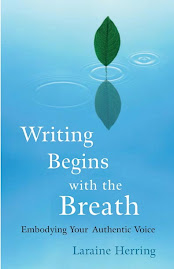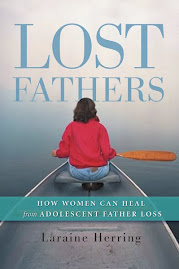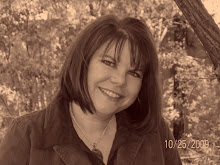Friday, March 26, 2010
Boundaries
One of the things I learned very early in my teaching career is the word "no." As in ...
No late work.
No extra credit.
No, I will not be on line to answer the question you e-mailed me at 11:57 pm for an assignment due at midnight.
No, just because you have access to your on-line course 24 hours a day doesn't mean I am hanging out waiting for you to speak 24 hours a day.
No, I will not chair every committee on the planet.
No, I will not ...
No, I will not ...
No, I will not ...
At first, the word "no" feels hard. It is sharp. It has that solid consonant "n" sound. The "o" is long, and can be dragged out for emphasis. Expletives can be added for further spice. Euphemisms can be used, as in ... I'll do that for you when pigs fly through the window and turn themselves into bologna in my office.
At first, "no" feels mean. It feels unaccommodating. It feels unfriendly. "Yes" starts off so much softer. The "Y" has a tail. The "e" is a short "e" sound. The "s" ties the word together with sweet closure. Everyone likes you when you say "yes." When you say "no", you're a bitch. Or worse.
There are things we all have to do in our jobs that are just part of the job. We might say "no" if we could get away with it, but we can't, so we say "yes" and make the best of it. I'm not talking about saying "no" to everything just to be snarky. I'm talking about knowing yourself. Knowing your boundaries. And knowing what you're authentically feeling at the moment and taking steps to ensure that you support that feeling rather than ignore it.
A clear "no" makes room for an honest "yes."
As a teacher, it's very very easy to say "yes" to everything. There's no "no police" hanging out to make sure you're setting effective boundaries. Students, colleagues, and the administration will ask anything and everything of you. It's up to you to say "no." You've got to self-regulate. It usually takes a year or two of teaching before you figure out that saying "yes" to everything actually makes you insane and resentful, if it's not balanced with a nice dash of "no". What is in balance one semester may not be in balance the second semester. As you get to know yourself and your work habits better, you'll be better able to determine what structure you need to keep yourself healthy. This is my fifteenth year of teaching. "No" has become mandatory.
The last few weeks I've been talking with my division dean and other colleagues about feeling tapped out. It's almost April. We're all tapped out. No big news there. When I teach a class, I am 100% committed to that class and those students. I cannot do it any other way. It is, as I've said in other posts, a sacred act for me. When I feel I am not capable of giving it 100%, it is up to me to set a different boundary for awhile. It is up to me to self-regulate. To say, "yes", I know I have x,y,z contractual obligations which I fully intend to meet. But "no", I won't add a,b,c additional duties. How can we modify x,y,z contractual obligations in such a way as to ensure that I can still teach with 100% of me? How can we adjust scheduling in such a way so that what makes me a good teacher -- in no small part the fact that I am an active writer -- doesn't fall away and I become what I most fear -- a fraud. The writing teacher who has given up her writing because of the "job." The writing teacher who has become afraid of no income, and so has crammed every moment of her time with paying work so that she'll have enough. Only, (and I know this because I've messed it up before), when I do that I find I don't have enough. I have nothing.
I teach and write from the same place -- the very essence of my heart. I don't use my intellect nearly as much as I use my intuition in the classroom or on the page. I am an artist in and out of the classroom. There comes a time when the well has to be replenished.
If I teach my students nothing about writing at all, I hope I at least have taught them, and shown them through example, the importance of honoring their current feelings and needs. The importance of not pushing away what is popping up for attention. The respect for that small voice inside of them that knows when to say "no" and when to say "yes." Saying "no" often at first makes people angry. They can feel betrayed, or rejected, or embarrassed. You are not responsible for that reaction. You are responsible for your health and well-being. Create a structure that feeds you.
It takes self-respect and courage to say "no" -- to withdraw from activities for awhile so you can return to them with renewed passion and perspective. It takes courage to state what you are feeling honestly. But when you don't, those feelings will fester and resurface in far more aggressive ways. If you feel out of balance, state that. Honor that. Don't try to make it go away or ignore it or wish it away. Stay with that feeling. It will be different in a moment because everything is different in a moment. But if you haven't given that feeling voice, you're allowing it to claim a part of you. You'll find you're left with nothing.
"No" makes room for "yes." When you honor what you truly need, not what you "should" be doing, not what your boss wants you to be doing, not what your students want you to do, not what your long-dead whomever wants you to do, you're stepping up to your authentic self. You're claiming your power. You're moving into freedom by setting clear boundaries.
Your "no" allows you to fly. Use it. Dance with it. And as it surrounds you with the safety of the solid arms of its "n", your "yes" will not only rise up, it will soar with you.
"Yes" is clear and free because "no" is clear and solid.
Subscribe to:
Post Comments (Atom)












4 comments:
Oh that I would have read this post a thousand "yeses" ago!
Peg Snyder
I can only imagine how imperative it must be for a teacher to find balance between themselves and their work. I am amazed that you can handle so much and it must be because of that little word No! From a past student, I just wanted you to know that your hard work is appreciated and I still use your lessons and guidance in my writing. Keep up the good work.
Boy, did I ever need to read this post today.
This morning, against my gut instinct, I said yes to an editing client's unreasonable request after he promised to make an important change in the way we interacted on his manuscript. Needless to say, by 4 p.m. he had completely forgotten his promise, was making more unreasonable demands, and I regretted it.
I used to have a sign above my computer which said, YES - as in, yes, try new things; yes, do what scares me; yes, take on challenging assignments. But now I need to swap it for a NO sign - or at least have both!
Hola Gata...I agree with what the guy said in Chinese and love the sound of noooooo and yessssss in any language or better yet MEEEOOOWWW, miss ya...
Almaluz xoxo
Post a Comment